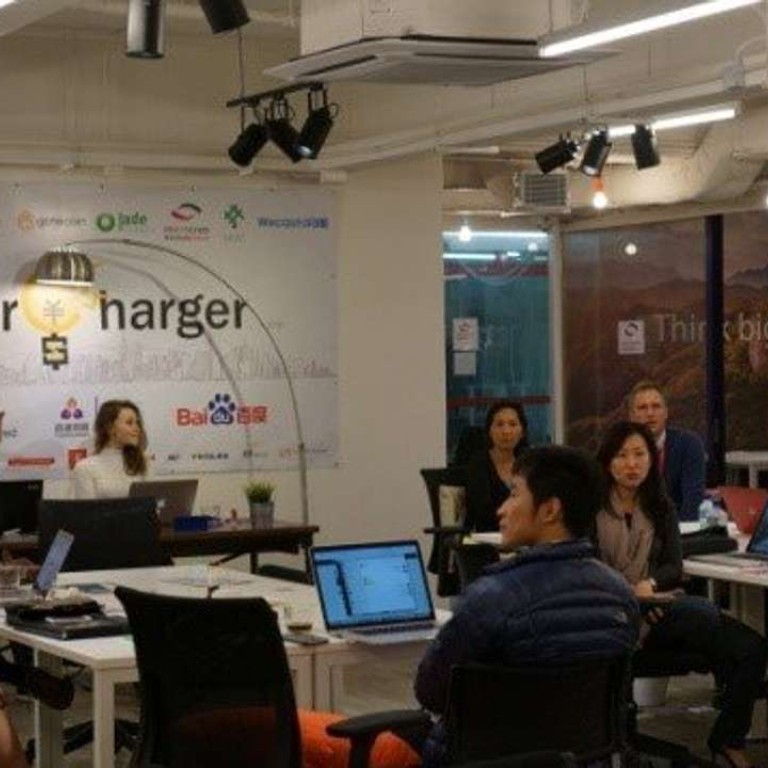
SuperCharged: accelerator picks 4 early and 4 late-stage start-ups in Hong Kong to give fintech industry a boost
Cutting-edge financial technology (fintech) companies and an old industrial neighbourhood in Hong Kong may not sound like a natural fit, but the area of Kwun Tong is now home to an accelerator programme for early and late stage start-ups.
The SuperCharger Accelerator is a 12-week programme for fintech start-ups that is taking a different approach from other such projects in the city by selecting four late-stage and four early-stage companies from a pool of more than 160 international applicants.
“We thought that the early stage companies could learn from the late-stage companies, how they managed to grow, some of the challenges and for the late-stage companies it’s also interesting to see business potential that might be out there,” said Renu Bhatia, managing director of SuperCharger.
SuperCharger is sponsored by Standard Chartered, Chinese internet search giant Baidu, and TusPark Global Network. Start-ups on the programme hail from China, India, Africa and Hong Kong.
Fintech is seen as a potential growth area for Hong Kong to create innovative new products or services based on its existing financial expertise and talent pool.
READ MORE: Banks should work with fintech firms operating in Hong Kong
The sector is receiving increasing support from the government in the form of dedicated policies and funding, and from the financial industry in the form of accelerators and innovation labs. These include the DBS Accelerator powered by Nest, and Accenture’s FinTech Innovation Lab Asia-Pacific.
The local interest in fintech follows a worldwide trend as global investment in this area rose to US$19.1 billion in 2015, according to a report from KPMG and CB Insights.
Fintech investments in China also grew to almost US$2.7 billion in 2015, up from US$619 million in investment in 2014, the report found.
Early stage digital currency exchange start-up Gatecoin was founded more than three years ago and joined the programme in January. Founder Aurelien Menant said his young start-up can learn a lot from the more established companies on the scheme.
“We’re developing innovative products, but we need partners or customers to use our solutions, so it’s extremely valuable to be working with more established start-ups that already have hundreds of thousands of customers with whom we can co-develop products,” he said.
READ MORE: Fintech a boon for the unbanked but a nightmare for regulators
Menant said Gatecoin has already formed partnerships with fellow accelerator participants MicroCred and Jade Payments, African micro lenders .
Jade Payments joined the accelerator from its base in Dubai, where it already has 60,000 pre-paid travel cards in circulation through a partnership with Dubai Airport, according to Sham Han, who handles strategy for the company.
In Hong Kong, the four-year-old company will focus on payment solutions for events such as tap-and-go wristbands to make purchases.

